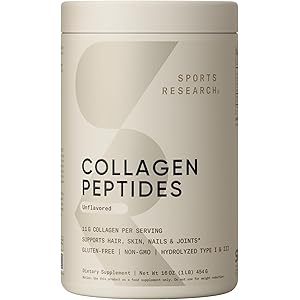Nordic Naturals Ultimate Omega, Lemon Flavor - 90 Soft Gels - 1280 mg Omega-3 - High-Potency Omega-3 Fish Oil Supplement with EPA & DHA - Promotes Brain & Heart Health - Non-GMO - 45 Servings
$34.43 (as of October 25, 2025 06:13 GMT +00:00 - More infoProduct prices and availability are accurate as of the date/time indicated and are subject to change. Any price and availability information displayed on [relevant Amazon Site(s), as applicable] at the time of purchase will apply to the purchase of this product.)What is Iron?
Iron is a vital mineral that plays a crucial role in various bodily functions, including the production of hemoglobin, which is essential for transporting oxygen in the blood. This mineral is not only important for maintaining energy levels but also for supporting overall health. Iron can be found in two forms: heme iron, which is derived from animal sources, and non-heme iron, which comes from plant-based foods. Understanding the differences between these two types of iron is key to ensuring adequate intake.
The Importance of Iron in the Diet
Iron is essential for several physiological processes, including the synthesis of DNA and the metabolism of proteins. A deficiency in iron can lead to anemia, characterized by fatigue, weakness, and a compromised immune system. It is particularly important for certain populations, such as pregnant women, children, and athletes, who may have increased iron needs. Ensuring a balanced diet that includes sufficient iron is crucial for maintaining optimal health and preventing deficiencies.
Sources of Iron
Iron can be obtained from a variety of dietary sources. Heme iron, which is more readily absorbed by the body, is found in red meat, poultry, and fish. Non-heme iron, on the other hand, is present in plant-based foods such as lentils, beans, tofu, spinach, and fortified cereals. Combining non-heme iron sources with vitamin C-rich foods, like citrus fruits and bell peppers, can enhance absorption. Understanding these sources is essential for those following vegetarian or vegan diets to ensure they meet their iron requirements.
Iron Deficiency and Its Symptoms
Iron deficiency can lead to a range of symptoms that can significantly impact daily life. Common signs include fatigue, pale skin, shortness of breath, and dizziness. In severe cases, it can result in iron-deficiency anemia, which may require medical intervention. It’s important to recognize these symptoms early and consult a healthcare professional for appropriate testing and treatment options. Regular monitoring of iron levels can help prevent deficiency and its associated health risks.
Recommended Daily Allowance of Iron
The recommended daily allowance (RDA) for iron varies based on age, gender, and life stage. Adult men typically require about 8 mg per day, while adult women need around 18 mg due to menstrual losses. Pregnant women have even higher needs, with an RDA of 27 mg. Children and adolescents also have specific requirements that change as they grow. Understanding these guidelines can help individuals tailor their diets to meet their iron needs effectively.
Iron Supplements: When Are They Necessary?
In some cases, dietary sources may not provide sufficient iron, leading to the need for supplements. Iron supplements can be beneficial for individuals diagnosed with iron deficiency or those at risk, such as pregnant women and vegetarians. However, it’s crucial to consult a healthcare provider before starting any supplementation, as excessive iron intake can lead to toxicity and other health issues. A healthcare professional can recommend the appropriate type and dosage based on individual needs.
Cooking and Iron Absorption
The way food is prepared can influence iron absorption. Cooking in cast iron cookware can increase the iron content of food, particularly acidic foods like tomato sauce. Additionally, certain foods and beverages can inhibit iron absorption, such as those high in calcium, tannins (found in tea and coffee), and phytates (found in whole grains). Being mindful of food combinations and cooking methods can help maximize iron intake and absorption.
Iron and Athletic Performance
For athletes, maintaining adequate iron levels is essential for optimal performance. Iron plays a critical role in oxygen transport and energy production, which are vital for endurance and strength. Athletes, especially those involved in endurance sports, may be at a higher risk of iron deficiency due to increased physical demands and potential dietary restrictions. Regular monitoring of iron levels and incorporating iron-rich foods into their diets can help athletes maintain peak performance.
Conclusion: The Role of Iron in Overall Health
Iron is a fundamental nutrient that supports numerous bodily functions and overall health. From energy production to immune function, maintaining adequate iron levels is essential for everyone, particularly those at higher risk of deficiency. By understanding the sources, requirements, and factors affecting iron absorption, individuals can make informed dietary choices to support their health and well-being.


